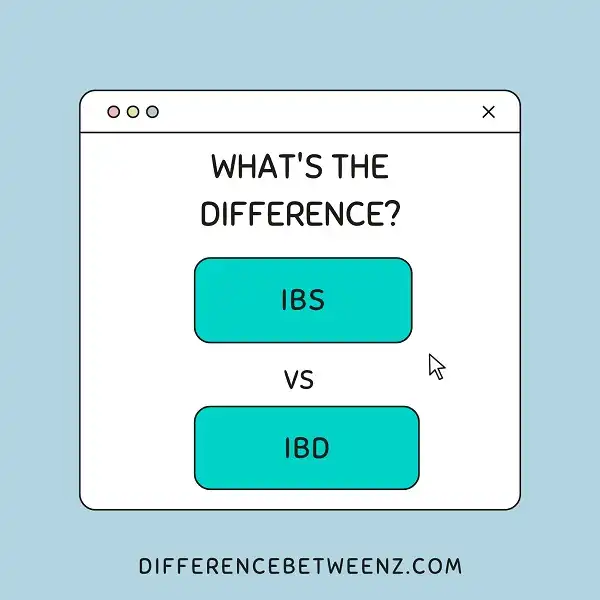Though both IBS and IBD are bowel diseases, they are quite different. IBS is a functional disorder, while IBD is an inflammatory condition. This means that the symptoms of IBS are due to a problem with how the bowel works, while the symptoms of IBD are due to inflammation in the intestine. While there is no cure for either disease, there are treatments available that can help lessen the symptoms. If you have any concerns about whether you might have one of these conditions, speak with your doctor. They can perform tests to determine which disease you have and then recommend the appropriate treatment.
What is IBS?
IBS is a common gastrointestinal disorder that affects the large intestine. Symptoms of IBS can include abdominal pain, bloating, gas, diarrhea, and constipation.
- IBS is a chronic condition, which means that it can last for months or even years. There is no cure for IBS, but there are treatments that can help to manage the symptoms.
- IBS is thought to be caused by a combination of factors, including genetics, posture, diet, and stress levels. In some cases, IBS may be triggered by an infection or an inflammatory condition.
- If you think you may have IBS, it is important to see a doctor for a diagnosis. IBS can be a lifelong condition, but with the right treatment plan, it can be managed effectively.
What is IBD?
- IBD is a chronic inflammation of the gastrointestinal tract. IBD primarily affects the small intestine and large intestine. IBD can be caused by a malfunctioning immune system or an infection.
- IBD is often treated with medication, surgery, or a combination of both. IBD can lead to a wide range of symptoms, including abdominal pain, diarrhea, weight loss, and fatigue.
- IBD can also cause long-term complications, such as intestinal blockages, fistulas, and ulcers. IBD is a serious condition that can be debilitating and even life-threatening. Early diagnosis and treatment are essential for managing IBD.
Difference between IBS and IBD
IBD and IBS are two very different conditions. IBD, or inflammatory bowel disease, is a chronic condition that causes inflammation in the digestive tract.
- IBS, or irritable bowel syndrome, is a condition that affects the way the digestive system works. IBD can lead to pain, diarrhea, weight loss, and fatigue.
- IBS can cause bloating, cramping, constipation, and diarrhea. IBD is a serious condition that can be life-threatening. IBS is not life-threatening but can be very uncomfortable.
- IBD requires medical treatment. IBS does not usually require medical treatment but can be helped by dietary changes and stress management.
Conclusion
IBS and IBD are both conditions that affect the gastrointestinal tract, but there are some key differences. IBS is a functional disorder, meaning that the bowel appears normal but doesn’t work properly. This can cause pain, bloating, constipation, or diarrhea. IBD is an inflammatory condition that causes damage to the intestinal lining. Symptoms can include abdominal pain, diarrhea or constipation, weight loss, and fatigue.


